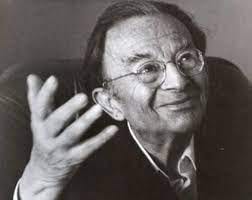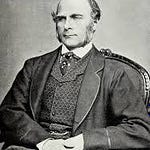Remember to become a paid member to have access to both romantipedia.com and courses.romanticdynamics.com so be sure to take advantage of those.
SHOW NOTES:
Erich Fromm: Exploring the Life and Contributions of a Pioneering Psychoanalyst and Social Philosopher
Erich Fromm (190-198) stands as one of the most influential figures in the fields of psychology, psychoanalysis, and social philosophy in the 20th century. Born in Frankfurt, Germany, Fromm's work traversed various disciplines, ranging from psychoanalysis to sociology, emphasizing the intertwined nature of human psychology and society.
Fromm's Early Life and Influences:
Erich Fromm was deeply influenced by his Jewish heritage, early exposure to psychoanalysis, and the turbulent socio-political landscape of Germany during his formative years. His experiences during the rise of Nazism and World War II profoundly shaped his later reflections on human nature, freedom, and authoritarianism.
From Psychoanalysis to Humanistic Psychology:
Initially trained as a psychoanalyst under the tutelage of Sigmund Freud and later associated with the Frankfurt School of critical theory, Fromm diverged from traditional psychoanalytic theory to develop his own humanistic approach to psychology. He believed in the positive potential of human beings for growth, self-realization, and meaningful relationships.
Key Concepts and Contributions:
1. Escape from Freedom: In his seminal work "Escape from Freedom" (1941), Fromm explored the psychological mechanisms underlying authoritarianism and the human tendency to seek security in conformity and relinquish personal autonomy. He delved into the complexities of individual freedom and responsibility in modern society.
2. The Art of Loving: Another notable work by Fromm, "The Art of Loving" (1956), examined the dynamics of love, relationships, and the cultivation of authentic connections. He emphasized the importance of self-love, empathy, and mutual respect in fostering healthy relationships.
3. Humanistic Ethics: Fromm's humanistic ethics centered on the concept of humanistic ethics composed of freedom, reason, and love. He advocated for a moral framework that values individual autonomy, critical thinking, and compassionate interactions among individuals and societies.
Legacy and Impact:
Erich Fromm's legacy endures through his profound insights into the dynamics of human behavior, relationships, and societal structures. His interdisciplinary approach, blending psychology, philosophy, and social theory, continues to inspire scholars and practitioners across diverse fields.
In conclusion, Erich Fromm's intellectual contributions have left an indelible mark on the realms of psychology, psychoanalysis, and social philosophy. His exploration of love, freedom, and human nature resonates with contemporary discussions on mental health, interpersonal relationships, and societal challenges, making his work as relevant today as it was during his lifetime.
Remember to become a paid member to have access to both romantipedia.com and courses.romanticdynamics.com so be sure to take advantage of those.















The Contributions of Erich Fromm